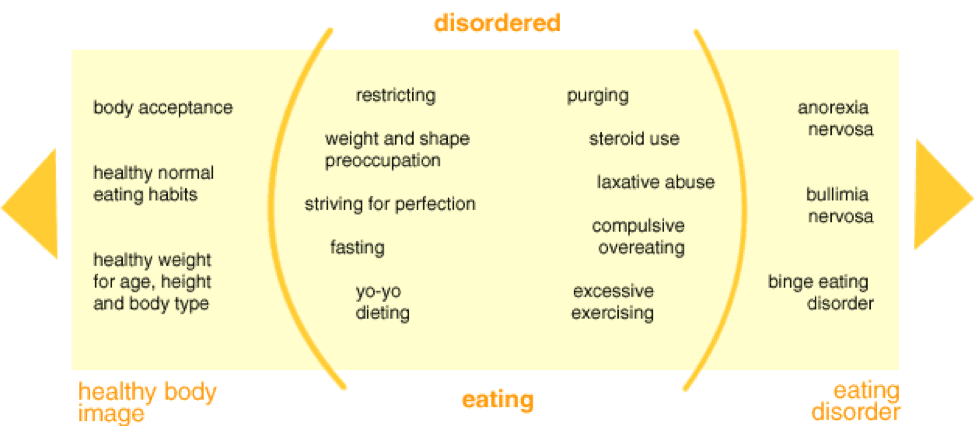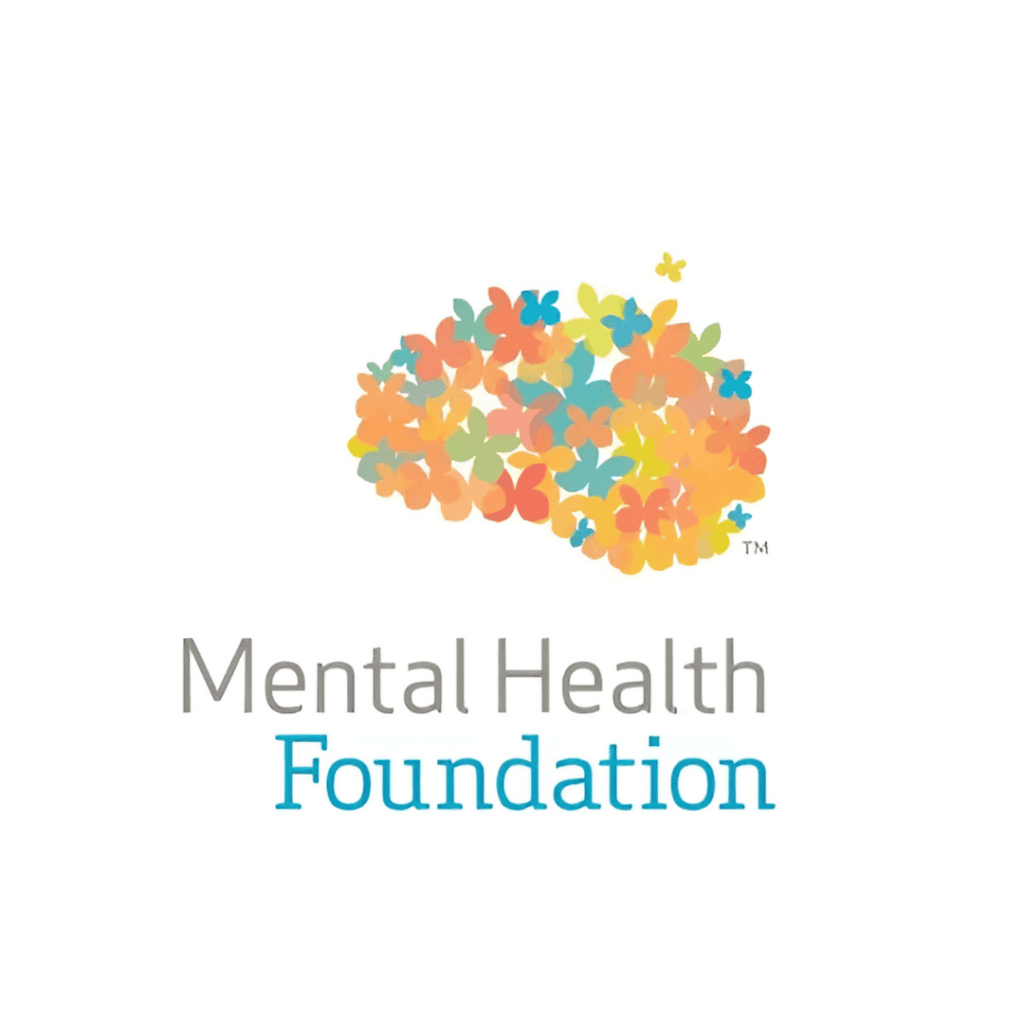Anorexia is an eating disorder. It includes having an unusually low body weight and a great fear of gaining weight. It also includes having a distorted perception of weight. Controlling weight and shape is very important to people with anorexia. They often use extreme ways that can greatly interfere with their health and their day-to-day lives. It’s a serious condition. With the right help, you can recover and take back control of your life.
Anorexia occurs most in girls and women. However, it has become more common in boys and men. This can be possibly related to growing social pressures. It occurs in all genders although less information about this is currently available.
Anorexia is also more common among teenagers. Teens may be more at risk because of all the body changes during puberty and increased peer pressure. Teens may also be more sensitive to criticism or casual comments about their body weight and shape.
The exact cause of anorexia is unknown. Like other diseases, it’s probably a mix of factors. These factors include biological, psychological, and environmental factors.
- Genetics. Changes in genes may put certain people at more risk of anorexia. Those with close family members who had the disorder have a much higher risk of anorexia. Close family includes parents, siblings, and children.
- Dieting and starvation. Dieting can increase your chances of developing an eating disorder. Evidence shows that many symptoms of anorexia are actually symptoms of starvation. Starvation affects the brain. It can lead to mood changes, anxiety, less appetite, and rigidity in thinking. Rigidity in thinking is when someone has difficulty switching from thinking about things one way to thinking about them in a different way. Starvation and weight loss may change the way the brain works in people more at risk of developing anorexia. These changes can cause continued restrictive eating behaviors and make it difficult to return to normal eating habits.
- Transitions. Big changes can cause emotional stress and increase the risk of anorexia. Examples of big changes include going to a new school, a relationship breakup, or losing a loved one.
Unfortunately, some people with anorexia don’t want treatment, at least in the beginning. Wanting to remain thin is greater than concerns about their health. That’s why it’s important to keep an eye out for any physical and mental health signs of anorexia.
Here are some signs that you or someone in your life might be dealing with anorexia.
- Dramatic weight loss
- Thinking or talking a lot about weight, food, calories, fat grams, and dieting
- Refusing to eat certain foods. This can turn into cutting out entire groups of food (e.g. no bread, no carbs)
- Talking about feeling “fat” or overweight despite weight loss
- Anxiety about gaining weight or being “fat
- Denying one is hungry
- Wearing baggy and multiple layers of clothing
- Development of food rituals (e.g. eating foods in certain orders, excessive chewing, rearranging food on a plate)
- Consistent excuses to avoid mealtimes or situations involving food
- Excessive, rigid exercise routine that is obsessive. Exercise happens regardless of weather, fatigue, illness, or injury. The need to “burn off” calories taken in is always the most important factor.
- Withdrawing from usual friends and activities
- Behaviors and attitudes indicating that weight loss, dieting, and control of food are becoming primary concerns
Remember that one of these signs alone doesn’t mean that someone has an eating problem! It’s when a number of these signs apply to us or someone in our life. This is when it might be time to start exploring if there is a pattern or problem developing.

Getting Help and Support
If you’re concerned about anorexia nervosa, you’re not alone. It can be very difficult to accept that you have a problem. When you do, there are lots of people who can help.
As your body struggles with not enough food, you may experience other symptoms. Please remember that getting help can be difficult. But it is very important. Individuals with anorexia may develop permanent physical health problems. Individuals can also lose their life to the physical or mental health symptoms of this illness.
|
|
|
|
|
|
|
|
|
|
|
|
|
|
|
|
|
|
Take the first step – Anorexia can happen to anyone. It can be very difficult to accept that you have a problem, but the first step is to talk to someone you like and trust, like a teacher, relative, pastor, counsellor, or friend. At some point, you will likely need professional help to assist you to recover.
You can start by seeing your doctor. They may offer to refer you to Child and Adolescent Mental Health Services (CAMHS), an expert, or a psychiatrist who can help you.
Our partner, EDSNA lists different options for support and treatment and describes options for getting help. Check them out here: Eating Disorder Support Network of Alberta (edsna.ca)
They also offer virtual workshops via Kickstand Connect, which you can learn about here. Sign-up for a free, virtual 1:1 mental health counselling or peer support session in the meantime.
Treatment of Anorexia
Treatment usually begins with figuring how much the anorexia is affecting your physical and mental health. If your weight is very low, you might be admitted to the hospital. This is to help get your strength back up and start on your recovery journey.
Your treatment could involve different healthcare workers. This can include:
- Mental Health Therapist or Counsellor
- Group and family therapy
- Dietician
- Peer Support workers
- Psychiatrist and/or family doctor
Our partner, EDSNA lists different options for support and treatment and describes options for getting help. Check them out here: Eating Disorder Support Network of Alberta (edsna.ca)
They also offer virtual workshops via Kickstand Connect, which you can learn about here. Sign-up for a free, virtual 1:1 mental health counselling or peer support session in the meantime.
Treatment programs focus on providing support to make sure you’re getting enough to eat. You’ll also learn what your healthy weight should be. You may also be offered medications.
When you have anorexia, it can be difficult to take care of yourself. Here are a couple of suggestions. In addition to professional treatment, try to:
- Stick to your treatment plan. Don’t skip therapy sessions. Try not to stray from meal plans, even if they make you uncomfortable.
- Talk to your doctor about appropriate vitamin and mineral supplements. If you’re not eating well, chances are your body isn’t getting all of the nutrients it needs. Like Vitamin D or iron. It is recommended that you try to get most of your vitamins and minerals from food but your doctor may also have some suggestions.
- Don’t isolate yourself from caring family members and friends who want to see you get healthy. Understand that they have your best interests at heart.
- Resist urges to weigh yourself or check yourself in the mirror frequently. These may do nothing but fuel your drive to maintain unhealthy habits.
Anorexia, like other eating disorders, can take over your life. It can be very difficult to overcome. With treatment, you can gain a better sense of who you are, return to healthier eating habits and regain control of your life.
Sources:
Treatment – Eating Disorder Support Network of Alberta (edsna.ca)
The Facts – Eating Disorder Support Network of Alberta (edsna.ca)



